Here at Bridges Therapy Centre, we are one of very few clinics in London offering virtual reality exposure therapy through the latest technology, as well as remote VR therapy. For those struggling with situations that trigger a disproportionate or irrational fear response, or those who have a diagnosed anxiety disorder or phobias, VR therapy can help you understand the source of your fears. Our experienced therapists use high-tech headsets to place you in a three-dimensional world, specific to your fear or phobia. Through VR exposure to these fears, we can help you to gradually learn to eradicate or neutralise your reactions.
In addition to phobia treatment, VR can also be used alongside EMDR therapy. For some clients, recreating elements of past environments or triggers through controlled virtual scenarios can help enhance EMDR’s reprocessing work, offering a deeper sense of immersion and emotional engagement during treatment.
How Does VR Therapy Work?
Through the use of a special headset, virtual reality therapy places you in a computer-generated world, where you ‘experience’ the various stimuli related to your phobia. We will guide you as you move through a realistic three-dimensional world, related to your specific fear. Your therapist will be able to gradually adjust the level of exposure, to elicit increasingly higher levels of anxiety and monitor your physical reactions. Through the practice of various cognitive skills and techniques, you will learn to cope better with your fears, in a controlled environment, that is safe and supported.
At every step, the therapist can see and hear what you are experiencing in the virtual world. If the level of anxiety becomes overwhelming, they can adjust the virtual scenario to a less stressful level of treatment, or you can simply remove the head-mounted display and exit the virtual world.
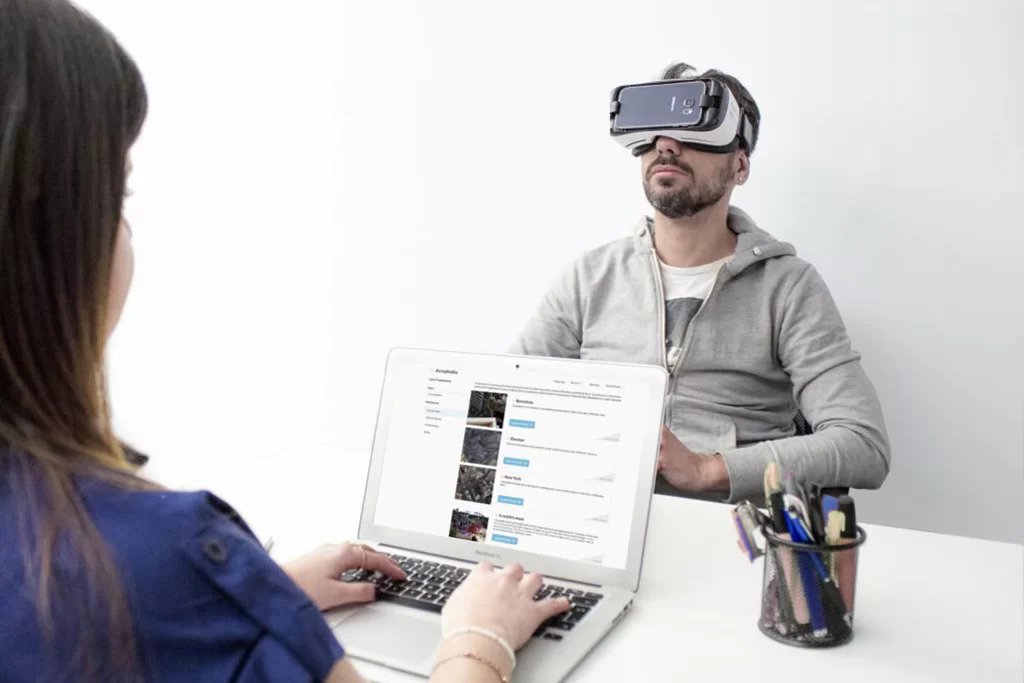
What are the Benefits of VR Exposure Therapy?
The benefits of virtual reality therapy have been documented in scientific literature for more than 20 years. Combined with cognitive behaviour therapy it enables us to teach you techniques for dealing with triggering situations, and to practice them in the comfort of our clinic. VR therapy lets you navigate within an artificial 3D environment in real time and ‘tricks’ your brain to react as if you are experiencing the situation in real life. Repeated exposure therapy allows you to encode your emotional memory with the understanding that the triggering situation isn’t dangerous and thus controls your reaction to it.
Virtual reality is only one of our tools used for psychotherapy, and does not take away from the basis of traditional talking therapies. We use virtual reality exposure therapy as a complementary tool to help you build confidence in triggering situations. We also use VR to support treatment for a growing range of specific phobias, including fear of flying, fear of needles, fear of public speaking and fear of driving, allowing clients to work through highly realistic scenarios in a safe and controlled way.
Our Virtual Reality Technology
Our therapists use PsyTech VR for our virtual reality therapy sessions, a comprehensive VR software specifically designed for mental health professionals. With multiple immersive virtual environments, including flying, tight spaces, social situations and high places, the PsyTech technology provides us with the ability to help those with a range of phobias and anxieties. The software also enables our therapists to apply a variety of techniques, by combining different VR environments together.
Moreover, the PsyTech VR app means that our therapists are able to offer remote virtual reality therapy, in the comfort of your own home. Once the app has been downloaded, a phone-connected VR headset is required, for your therapist to be able to guide you through the exposure.
Contact Us
To learn more about our virtual reality therapy in Canary Wharf, Hendon, Central London and online, contact a member of our team today to arrange your free 15 minute informal consultation.
PsyTech VR for Virtual Reality Therapy
Example Scenarios from Virtual Reality Therapy
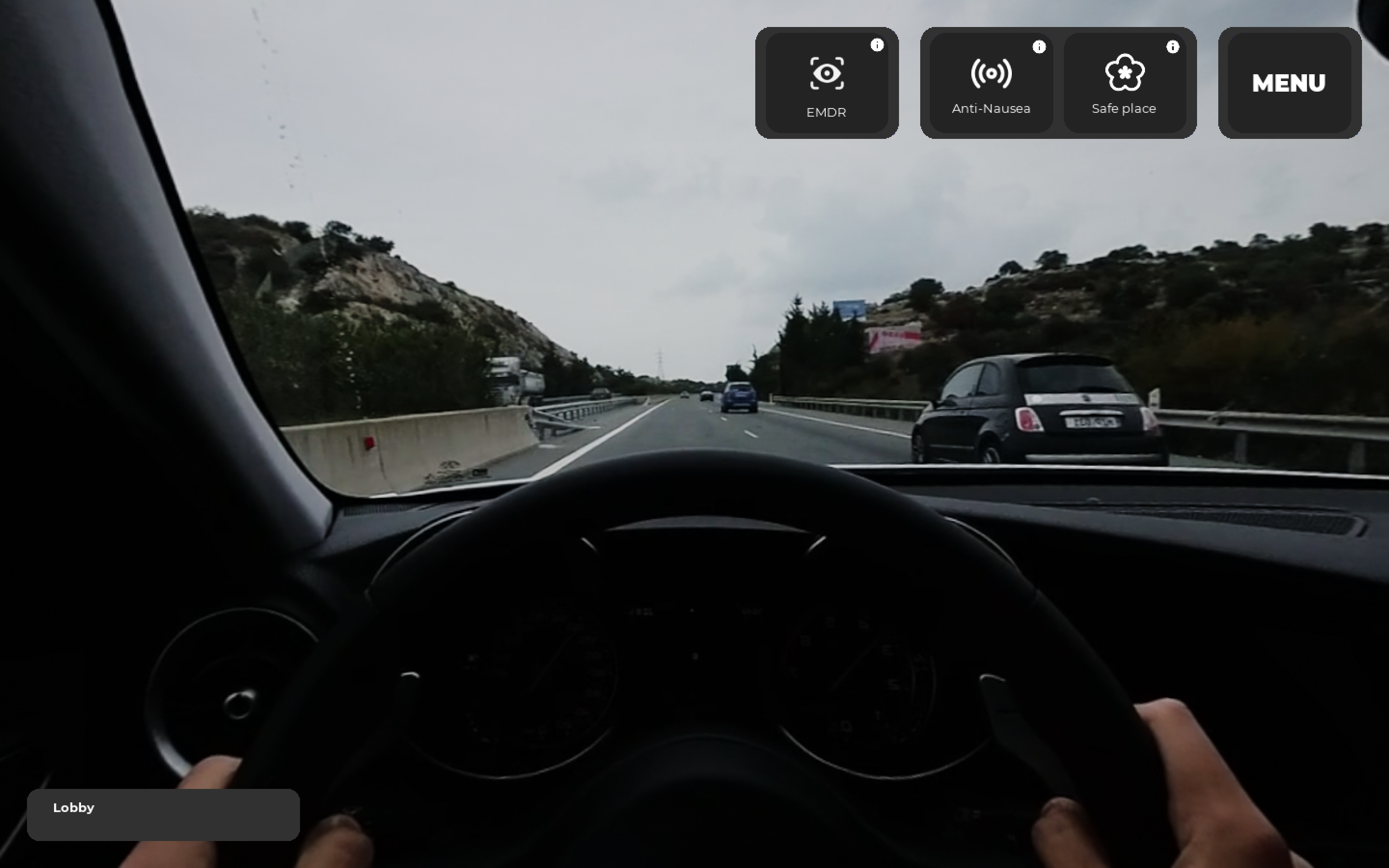
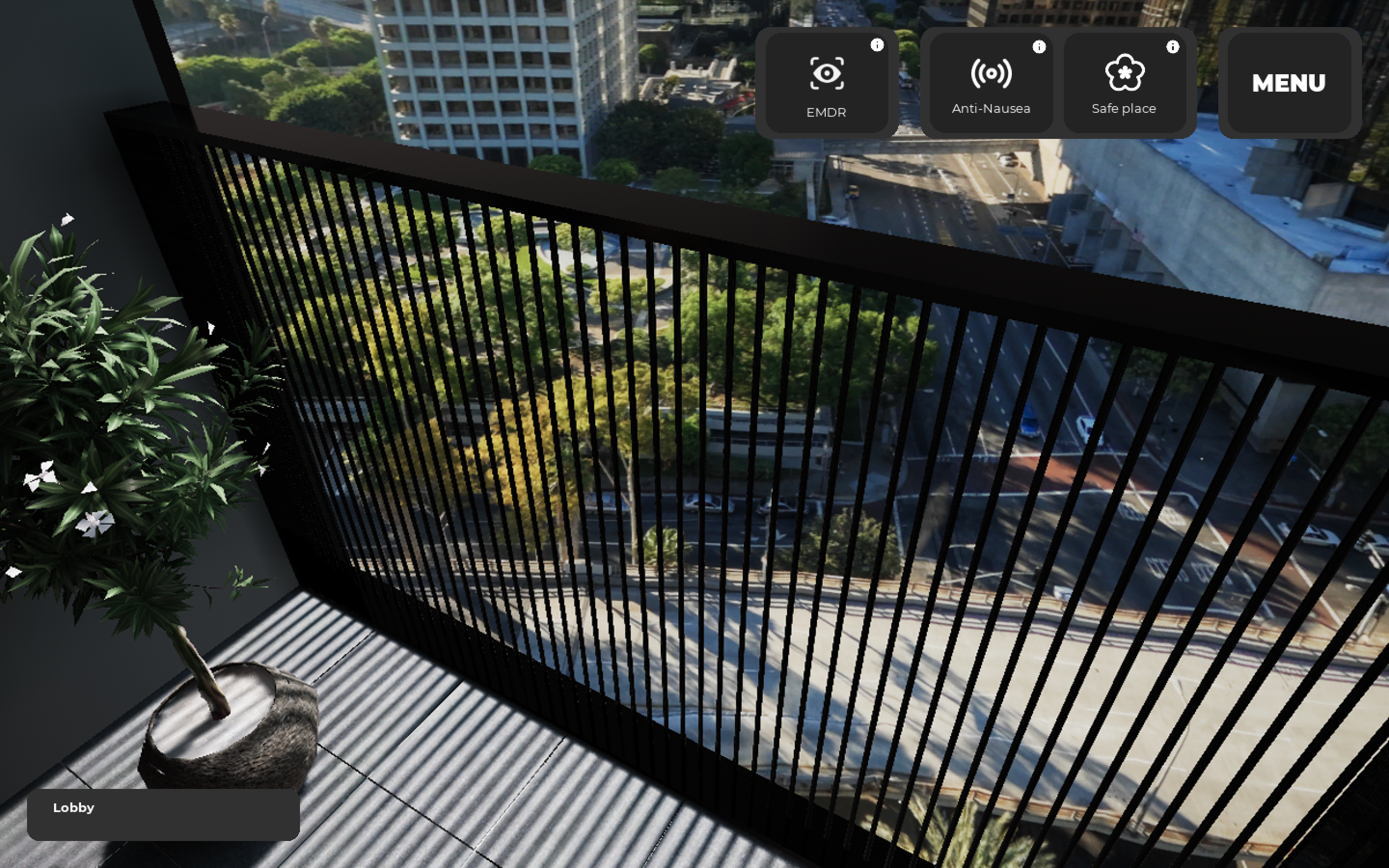
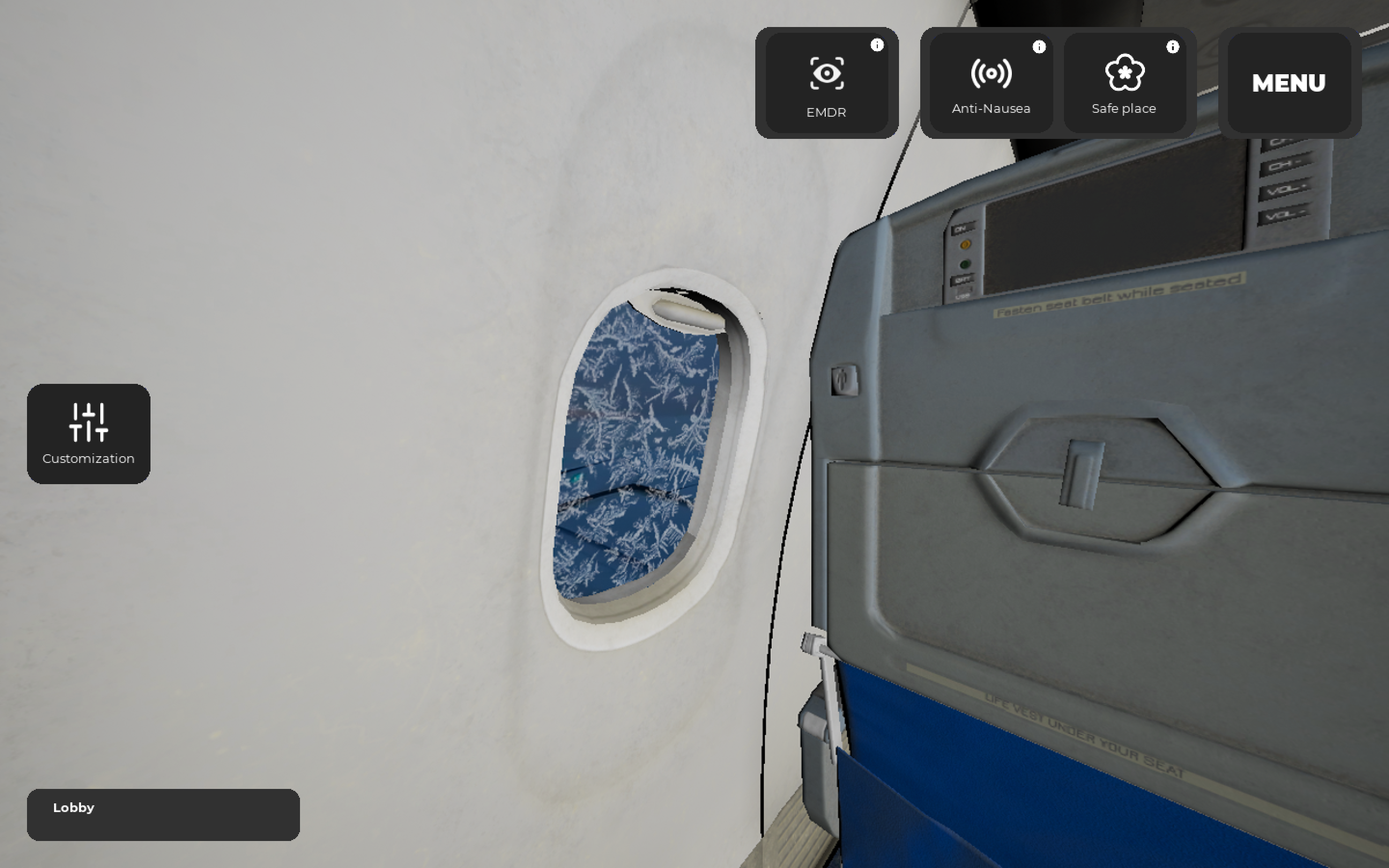
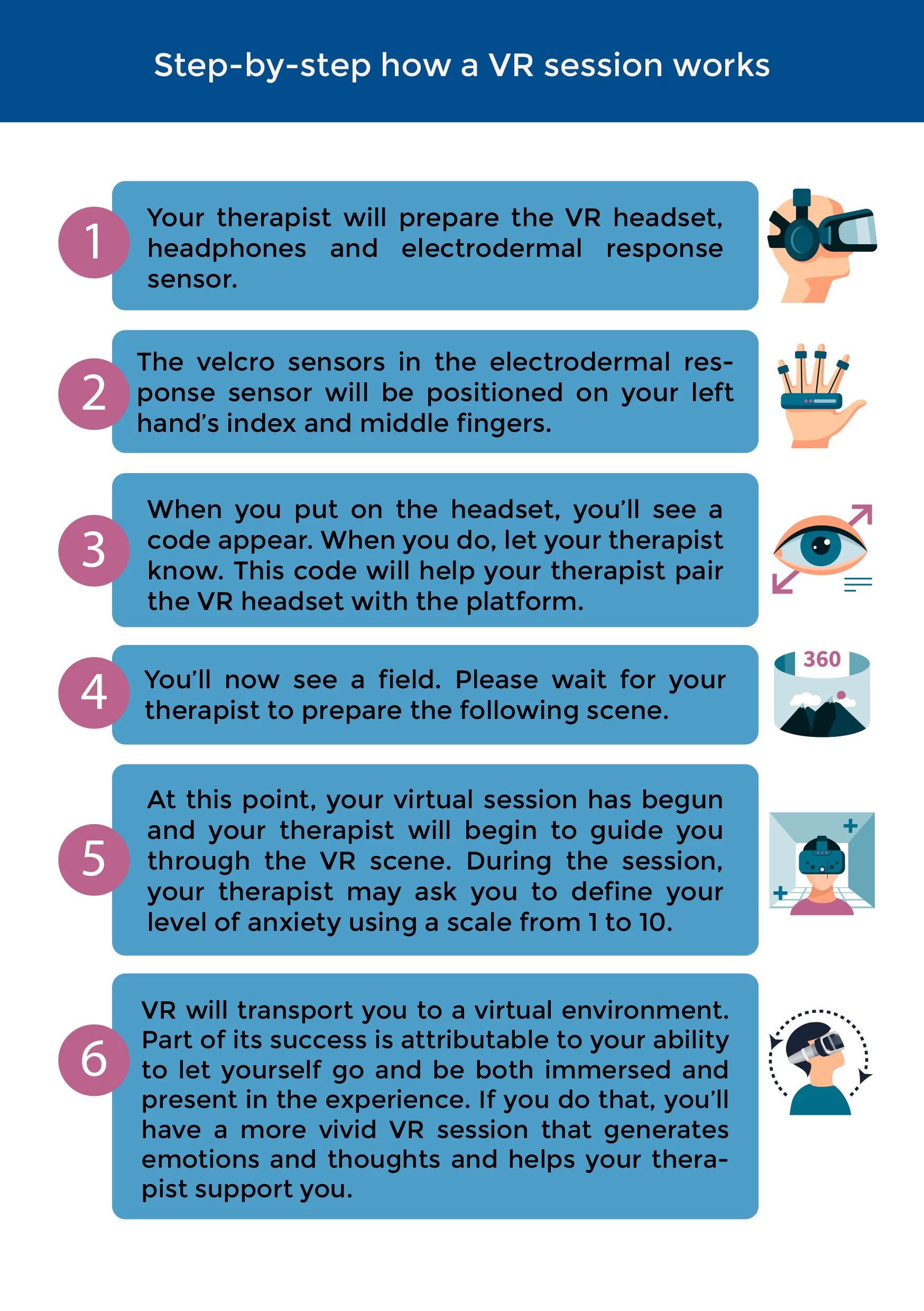
FAQs About Virtual Reality Therapy
Find out more about this scientifically backed technology below, including commonly asked questions and example immersive VR scenes.
Is VR More Effective Than Traditional Techniques?
More than a decade of controlled studies have shown the effectiveness and efficiency of VR-based therapies intervention on mental disorders, especially anxiety and specific phobias. Its level of clinical effectiveness is higher than the traditional imagination exposure technique. It is also effective as in vivo exposure (Opriş, et al., 2012; Meyerbröker et al., 2010; Parons et al., 2008; Emmelkamp et al., 2002). However, using VR does not mean completely forgoing other approaches – quite the contrary. Both VR therapy and Cognitive Behavioural Therapy (CBT) can enhance the effects of standard intervention.
Is VR Like Playing a Video Game?
Yes and no. On one hand, like video games, VR therapy finds stronger appeal in people who engage their imagination to the furthest extent possible during sessions. Using your imagination can help foster a sense of immersion. VR has been shown to work well with children for this reason. On the other hand, VR is different from video games in that its unique technological capacity helps enhance the sense of presence. In other words, when you use this technology, your ability to distinguish between the virtual world and reality could become negligible ( Jose Gutiérrez Maldonado, 2002).
Can I Expect Quick Results with VR?
Results obtained from any line of therapy will differ from one case to the next. Depending on the condition that you have, you may need more or less virtual reality therapy sessions. Your therapist will help determine the number of sessions. In comparison with the traditional imaginative techniques, VR delivers quicker results because not everybody has the same imagination capacity. Also, VR reduces logistic time and costs associated with in vivo exposure. This means that you don’t need to step out of your therapist’s office to be exposed to the stimuli of which you are afraid (Maldonado, 2002).
Can VR be a Substitute for Real Life Experiences?
Various studies have shown that VR can promote a sense of presence and trigger bodily responses similar to in vivo exposure (Morina, N. et al., 2015). These reactions will help your therapist to work through them in sessions without the need for you to be placed in or exposed to an actual, high-risk scenario.
Why Virtual Reality Therapy?
Many people with different conditions tend to prefer VR therapies because in vivo exposure can be too intense (García-Palacios et al., 2007). VR gives your therapist more control of the environment to which you are exposed, so that the level of exposure adjusts to and fits your needs and the intervention process. Also, VR therapy respects your confidentiality, being that you won’t need to leave your therapist’s office like in cases of real-life exposure.
Bridges Therapy Centre
18a Heriot Road,
London, NW4 2DG
Bridges Therapy Centre - Hendon, London, NW4 - English & Hebrew Counselling & Therapy Services
The contents on this site is for information only, and is not meant to substitute the advice of your own physician or other medical professional
